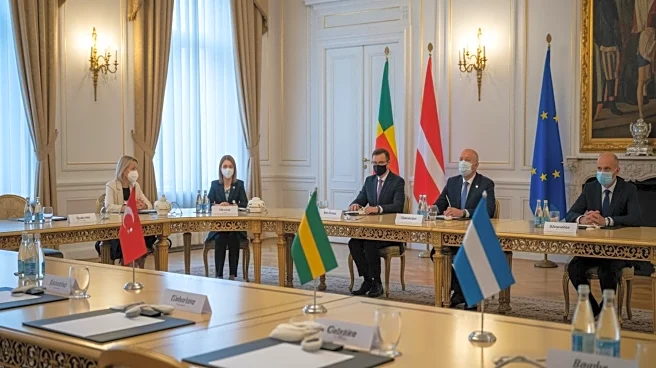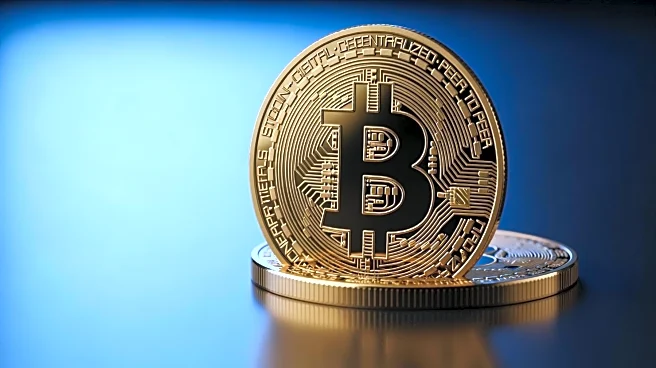What's Happening?
Hungary's Prime Minister Viktor Orbán has expressed readiness to host a summit between U.S. President Donald Trump and Russian President Vladimir Putin, aiming to facilitate peace talks regarding the ongoing
war in Ukraine. Orbán highlighted Hungary's consistent policy of advocating for peace and emphasized the importance of negotiations over battlefield resolutions. The announcement follows a series of diplomatic engagements, with Hungary positioning itself as a neutral ground for discussions. Foreign Minister Péter Szijjártó reiterated Hungary's commitment to peace, noting that the conflict cannot be resolved militarily. The potential summit has sparked mixed reactions within Hungary, with opposition leaders questioning the feasibility and motivations behind the meeting.
Why It's Important?
The proposed summit between President Trump and President Putin in Hungary could have significant implications for international diplomacy and the resolution of the Ukraine conflict. If successful, the meeting could pave the way for a negotiated settlement, potentially easing tensions in Eastern Europe and impacting global geopolitical dynamics. Hungary's role as a host underscores its strategic positioning and diplomatic ambitions within Europe. However, the summit also raises questions about Hungary's compliance with international legal obligations, particularly concerning the International Criminal Court's arrest warrant for Putin. The outcome of the summit could influence Hungary's international standing and its relations with both Western allies and Russia.
What's Next?
Preparations for the summit are underway, with Hungary engaging in diplomatic discussions with U.S. and Russian officials. The meeting's success will depend on the willingness of both parties to engage in meaningful dialogue and compromise. Observers will be watching closely to see if the summit leads to concrete steps towards peace in Ukraine. Additionally, Hungary's impending withdrawal from the International Criminal Court could complicate its diplomatic efforts, particularly if legal issues surrounding Putin's arrest warrant arise during the summit.
Beyond the Headlines
The summit highlights the complex interplay between international diplomacy and domestic politics. Hungary's decision to host the meeting may be influenced by its own political considerations, including Prime Minister Orbán's electoral prospects. The event also underscores the challenges of balancing national interests with international legal obligations, as Hungary navigates its relationship with the ICC. The broader implications of the summit could extend beyond the immediate conflict, potentially reshaping alliances and power dynamics in Europe and beyond.









